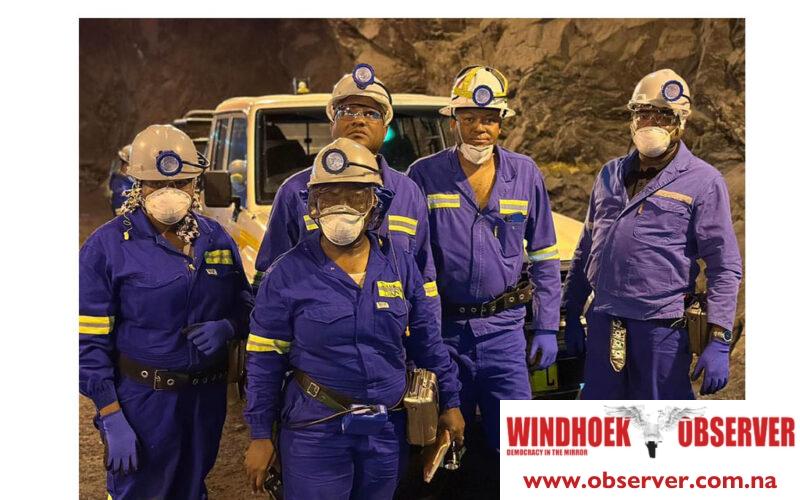Total direct employment in the mining industry increased by 12,6% in 2023 to 18 189, from 16 147 in 2022.
Zebra Kasete, President of the Chamber of Mines of Namibia attributed the increase to the creation of new employment positions resulting from the restart of the Langer Heinrich mine and expansion of other operations.
Direct employment consisted of 8 950 permanent employees, 803 temporary employees and 8 436 contractors.
Kasete said every job created by the industry also generates important sources of revenue for government through PAYE and VAT as a consumption tax.
In 2023, employees from mining companies paid N$1.493 billion in PAYE. The majority of individuals employed by the mining sector are Namibians, which consisted of approximately 97% of the mining workforce in 2023.
“This means that the wage bill of N$6.8 billion circulated within Namibia’s borders and creates local spin-offs that support and benefit other sectors of the economy,” said Kasete.
The mining sector spent approximately N$21 billion on goods and services from Namibian registered businesses.
“As a proportion of total procurement (N$26 billion), 80% was spent on local businesses. Local procurement also constituted 40.9% of total of the N$ 51 billion in revenue generated by the industry.”
On the issue of shareholding, Kasete said the Minister of Mines and Energy initially disclosed government’s intention to introduce a free carry shareholding, to be held by the state in Namibian mines, during his address to Parliament on 1st March 2023.
“This policy position was reiterated by the Minister during a workshop organised by the Parliamentary Standing Committee on Natural Resources in June 2023 in Swakopmund,” he recalled.
The minister’s announcement during the workshop drew attention from both local and international media, causing substantial turmoil in Namibia’s investment sentiment, Kasete added.
“Companies with projects in Namibia listed on the Australian and Canadian stock exchanges saw a sharp decline in their share prices, which was fuelled by widespread panic that a government free carry would be introduced imminently,” he observed.
Kasete warned that the proposed mandatory government shareholding, if not properly handled, threatens to undermine the economic viability of existing mines and future projects.
He added that a government free carry will introduce an additional cost burden to mining companies as they would have to finance government’s shareholding.
“The Chamber thus views this proposal as a cost matter. As such, the Chamber successfully advocated for it first to be deliberated at a technical level, between the Executive Directors of the Ministry of Finance, Ministry of Mines and Energy and the Chamber of Mines, to fully understand and clarify the implications of the proposed free carry.”




